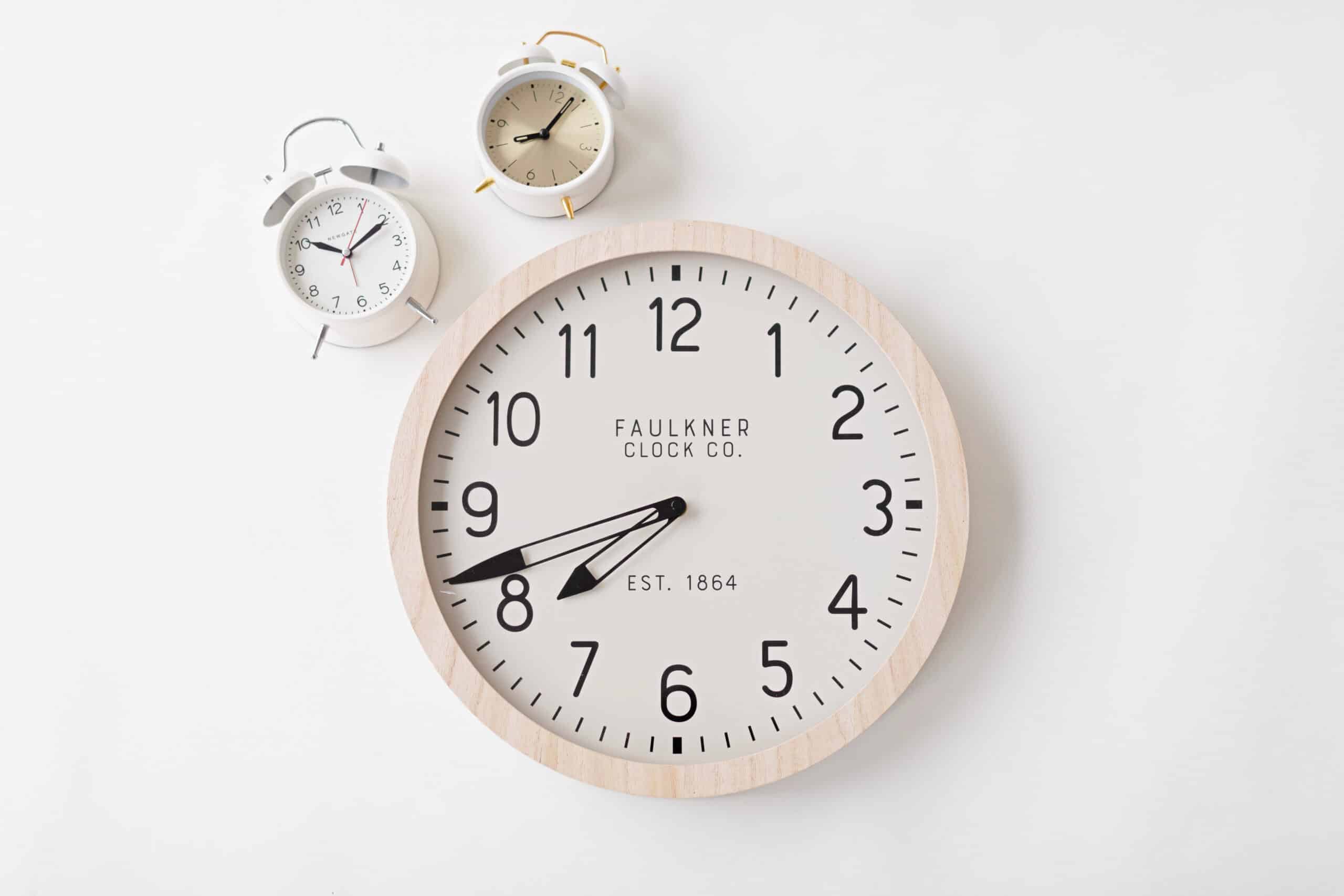
01 Mar How to Handle the Upcoming Daylight Savings Time Spring Forward 2025
It’s almost March 9th when we “spring forward” one hour. Resulting in us “losing” an hour of sleep! On the flip side, many adults anticipate this time of year because we get longer evenings.
In this blog, we’ll explain why your little one’s sleep is affected by the time change, as well as go over some solutions that can help both of you get the rest you need, both leading up to and after Daylight Savings Time ends.
Why Does The Time Change Affect My Child’s Sleep Schedule?
The biggest reason that changing the clock an hour disrupts your child’s sleep schedule is that it precedes a shift in their circadian rhythm.
According to the National Institute of General Medical Sciences, “Circadian rhythms are physical, mental, and behavioural changes that follow a 24-hour cycle. These natural processes respond primarily to light and dark and affect most living things, including animals, plants, and microbes.”
When the time changes, so do the daily cycles of light and dark. As a result, our bodies can feel a little jet-lagged.
Adults can quickly overcome this jet-lagged feeling because we’ve been through two time changes every year for our whole lives. But for our children, the transition can be a challenge. Unless we prepare them for moving the clock forward, they will likely wake up later and not want to go down at their normal bedtime, which means we will do the same thing.
The good news is there are lots of ways to make the end of Daylight Savings Time easier for your child (and consequently, for you).
Let’s start with the things you can do in the weeks leading up to the clocks springing forward an hour to get your child used to the time change to come.
3 Things You Can Do To Help Your Child Before The Time Change
Here are three things you can do before the time changes to help your little one adjust their Circadian rhythm.
- Expose Them To Sunlight During The Day
Get your child used to playing or sitting in the sunlight in the afternoon. Sunlight signals your Circadian rhythm that it’s time to be awake, which will help your little one tremendously after the time change.
- Make Their Bedroom As Dark As Possible For Sleep
When the time moves forward one hour, you’ll notice that the sun is up later. This means that at the time your child normally goes down, it’s going to be brighter outside. Making their bedroom as dark as possible when it’s time to sleep – i.e., eliminating night lights, and hanging up blackout curtains (blackout curtains) (code sleepbebesleep for 10% off)- will help them fall asleep during daylight savings time spring forward.
- Keep Your Little One Well Rested
Make sure your child is well rested. This, more than anything, will help them transition to the new schedule more smoothly.
Now you have a plan of action for the days before the time change. But what about during and after? We cover a couple of strategies you can try in the next section.
How To Help Your Child Adjust During And After The Time Change
When the fateful day of changing the clocks comes, there are two different strategies you can try. The one you choose depends on which one you feel your child will adjust to the best.
- Change Their Wake-up Time Slowly
On Thursday, introduce your baby/toddler to the new time by getting them in bed slightly earlier than usual. For example, if your little one usually goes to bed at 7 pm and wakes at 7 am, move it to 6:30 pm and 6:30 am so that when the time changes, you will already be adjusted to the new times.
If you decide to do this, you may want to move their meals, and nap times, earlier by 30 minutes, as well.
- Stick With Their Current Schedule
If your little one is sleeping well and you are happy with their schedule, keep wake-up time and bedtime the same! Simply wake them up at the usual time of the time change on Sunday morning and carry on. Your child will adjust eventually, as will you.
Advice For Parents Of Babies Younger Than 3-4 Months
Maintaining your current schedule is best for parents of babies younger than 3-4 months. They will adjust quickly because they don’t have a set circadian rhythm. Follow their wake windows and sleepy cues to determine naps and bedtime, just as usual.
When In Doubt, Sleep Bebe Sleep Can Help
Finally, know that help is available if you are ever struggling with sleep. If your challenges as a parent are bigger than just your child’s early waking, please know that I have packages to meet you where you are. I will give you the step-by-step guidance you need to achieve your sleep goals and get your nights back, even with your child being as young as 0-15 weeks.
Click here to schedule a free 15-minute discovery call with me, Sonya, the founder of Sleep bebe Sleep and your future sleep consultant.


No Comments